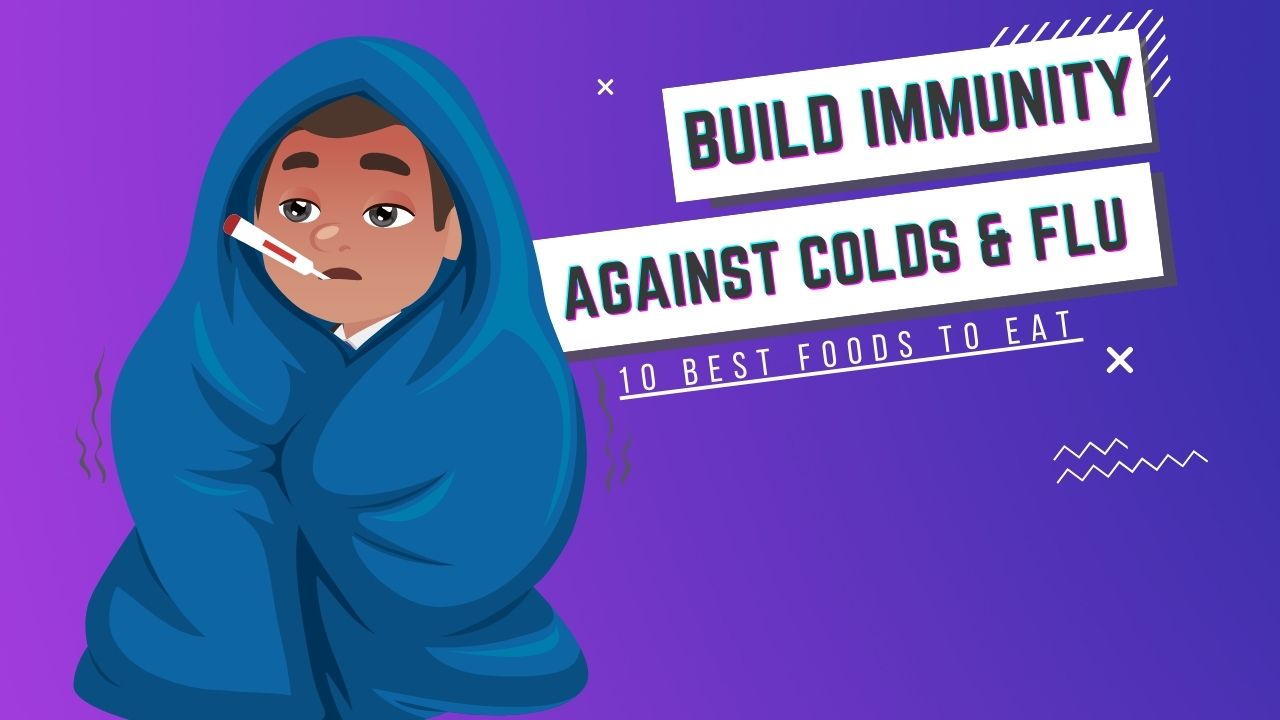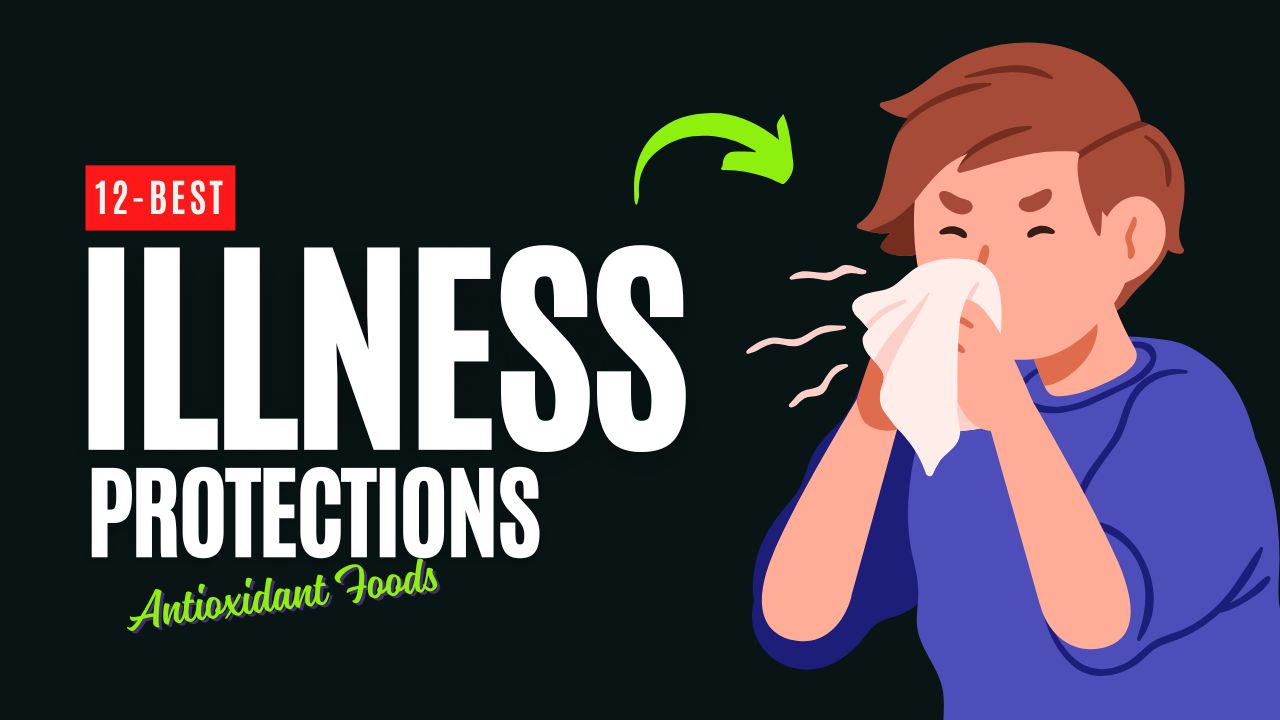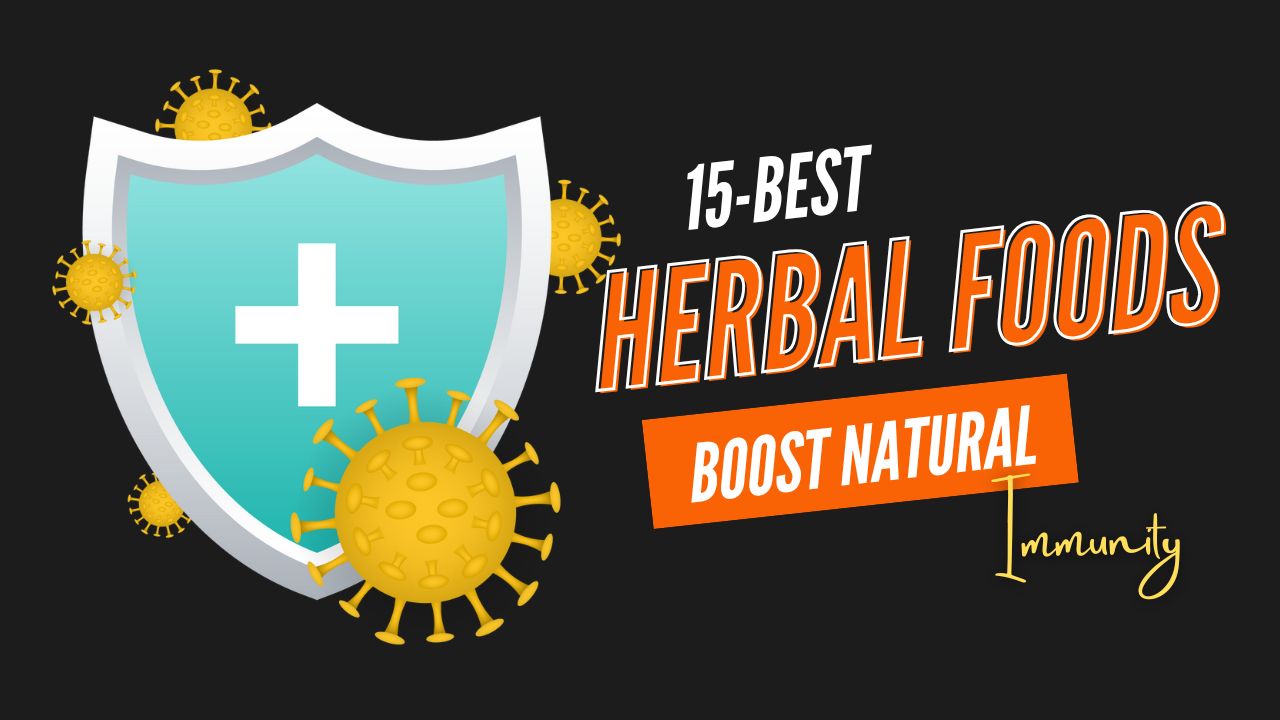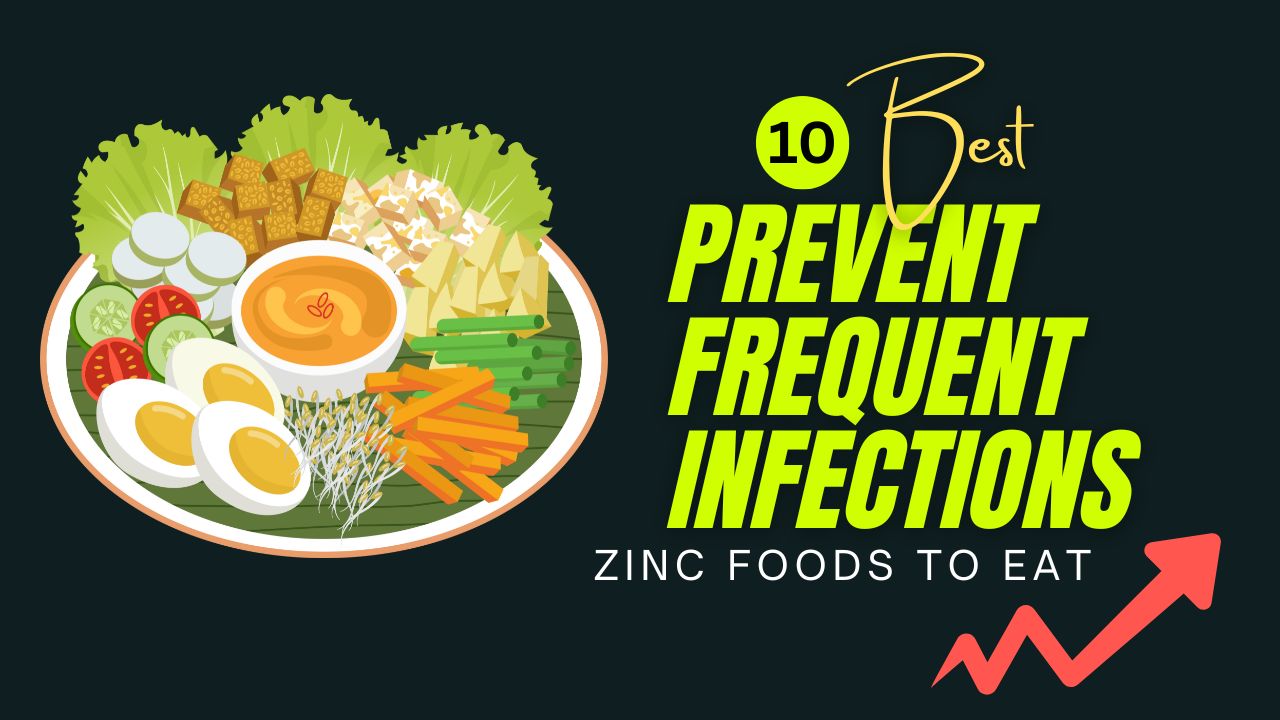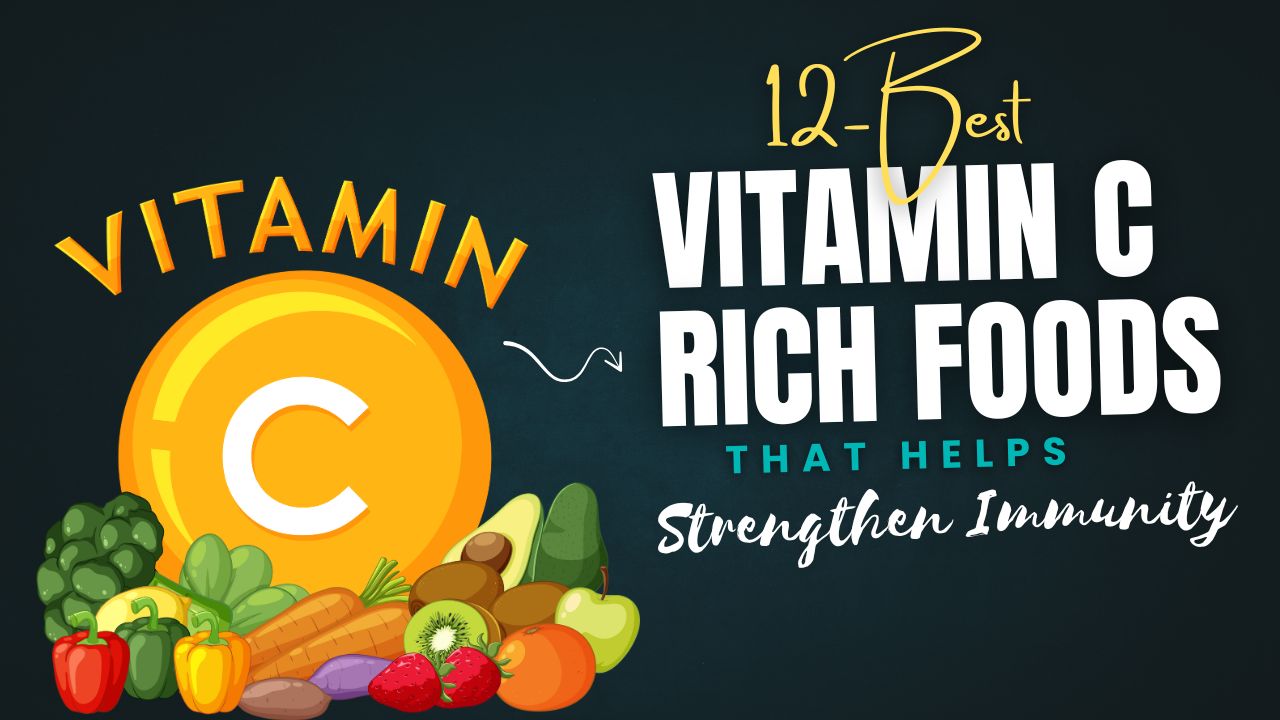Did you know that over 30% of the world’s population is at risk of zinc deficiency, and most people don’t even realize it?
Zinc may not get as much attention as vitamin C or iron, but it’s a silent warrior in your body. From helping wounds heal faster to strengthening immunity and keeping infections at bay, zinc is one nutrient you can’t afford to ignore.
If you’ve been falling sick often, struggling with slow healing cuts, or feeling unusually fatigued, a lack of zinc might be one of the reasons. The good news? You can restore your zinc levels naturally through the right foods.
In this article, we’ll explore 10 powerful zinc-rich foods that help prevent frequent infections, along with:
- The best ways to eat or use them.
- Who should eat them and who should avoid them.
- Storage and buying tips to preserve their nutrition.
- Do’s and don’ts in a simple table format.
- Possible side effects if consumed in excess.
Let’s dive into the top foods that can fortify your body’s defenses.
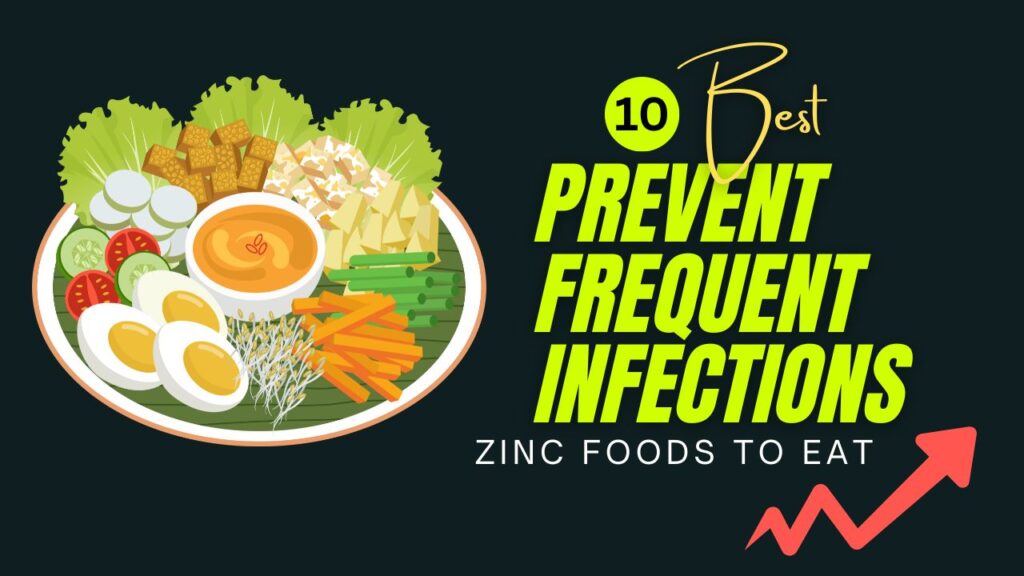
Table of Contents
10 Best Zinc Rich Foods To Eat
1. Oysters
Oysters are the richest natural source of zinc—just one serving can give you more than 400% of your daily requirement. That’s why they’ve earned the title “immune-boosting superfood.”
Best Ways to Eat or Use It
- Lightly steamed with herbs.
- Grilled with garlic and lemon.
- Added to seafood soups or chowders.
Who Should Eat / Avoid
- Good for: People with weak immunity, athletes needing faster muscle recovery.
- Avoid if: You have shellfish allergies or kidney issues.
Storage & Buying Tips
- Always buy fresh oysters with tightly closed shells.
- Store on ice in the refrigerator and consume within 2 days.
Do’s & Don’ts
✅ Do: Cook lightly to retain nutrients.
❌ Don’t: Eat raw if you have a weak immune system.
Possible Side Effects
Too much oyster consumption may lead to excessive zinc intake, causing nausea or stomach upset.
2. Pumpkin Seeds
Pumpkin seeds are a plant-based powerhouse packed with zinc, magnesium, and antioxidants.
Best Ways to Eat or Use It
- Sprinkle on salads or yogurt.
- Blend into smoothies.
- Eat roasted as a crunchy snack.
Who Should Eat / Avoid
- Good for: Vegetarians, students, and office workers who need brain focus.
- Avoid if: You have seed allergies.
Storage & Buying Tips
- Choose raw or unsalted seeds for maximum nutrition.
- Store in airtight jars to prevent rancidity.
Do’s & Don’ts
✅ Do: Pair with fruits for better nutrient balance.
❌ Don’t: Store in humid places; they spoil quickly.
Possible Side Effects
Excessive consumption can cause digestive bloating due to their fiber content.
3. Chickpeas
Chickpeas are an affordable and versatile source of zinc, fiber, and plant-based protein.
Best Ways to Eat or Use It
- Blend into hummus.
- Toss into salads.
- Cook into curries or stews.
Who Should Eat / Avoid
- Good for: Diabetics (low glycemic index), vegetarians.
- Avoid if: You experience gas or bloating easily.
Storage & Buying Tips
- Use canned chickpeas for convenience, but rinse before use.
- Store dry chickpeas in airtight containers away from moisture.
Do’s & Don’ts
✅ Do: Soak overnight before cooking for better digestion.
❌ Don’t: Eat raw—they contain compounds that interfere with digestion.
Possible Side Effects
Overeating may lead to gas and stomach cramps.
4. Beef
Lean beef is a zinc-rich food that also delivers high-quality protein and iron.
Best Ways to Eat or Use It
- Grilled steak.
- Ground beef in tacos or meatballs.
- Stir-fried with vegetables.
Who Should Eat / Avoid
- Good for: Athletes, growing teenagers, and people with anemia.
- Avoid if: You have gout or high cholesterol issues.
Storage & Buying Tips
- Buy grass-fed beef when possible.
- Store raw beef in the fridge for up to 3 days or freeze for longer.
Do’s & Don’ts
✅ Do: Trim visible fat for a leaner cut.
❌ Don’t: Overcook—it reduces nutrient content.
Possible Side Effects
High intake may increase cholesterol levels if eaten excessively.
5. Cashews
Cashews are not only creamy and delicious but also a good source of zinc and healthy fats.
Best Ways to Eat or Use It
- Add to stir-fries.
- Blend into cashew butter.
- Use in smoothies for creaminess.
Who Should Eat / Avoid
- Good for: Kids, vegetarians, and busy professionals.
- Avoid if: You have nut allergies.
Storage & Buying Tips
- Store in airtight containers in a cool, dark place.
- Refrigerate to extend shelf life.
Do’s & Don’ts
✅ Do: Eat unsalted versions for better health.
❌ Don’t: Eat rancid nuts—they lose nutrition.
Possible Side Effects
Eating too many may cause weight gain due to calorie density.
6. Lentils
Lentils are zinc-packed legumes that also supply protein, iron, and folate.
Best Ways to Eat or Use It
- Cook into soups or stews.
- Add to salads.
- Blend into veggie patties.
Who Should Eat / Avoid
- Good for: Pregnant women (folate benefits), vegetarians.
- Avoid if: You have severe IBS symptoms.
Storage & Buying Tips
- Store dry lentils in airtight containers.
- Cooked lentils should be refrigerated and used within 3 days.
Do’s & Don’ts
✅ Do: Combine with rice for complete protein.
❌ Don’t: Leave cooked lentils out for long—they spoil quickly.
Possible Side Effects
Excess fiber may cause bloating if not eaten with water.
7. Yogurt
Yogurt is a zinc-rich dairy product that also provides probiotics for gut health.
Best Ways to Eat or Use It
- As a breakfast parfait with fruits.
- In smoothies.
- As a base for dips and sauces.
Who Should Eat / Avoid
- Good for: People with digestive issues, children.
- Avoid if: You’re lactose intolerant.
Storage & Buying Tips
- Choose plain, unsweetened varieties.
- Store refrigerated and consume before the expiry date.
Do’s & Don’ts
✅ Do: Pair with fruits for added antioxidants.
❌ Don’t: Leave outside the fridge for more than 2 hours.
Possible Side Effects
Some people may experience bloating or gas due to lactose.
8. Spinach
Spinach may not be as zinc-rich as oysters, but it still contributes a steady amount along with iron and antioxidants.
Best Ways to Eat or Use It
- Add to green smoothies.
- Use in salads or stir-fries.
- Cook lightly with garlic.
Who Should Eat / Avoid
- Good for: Women, especially during menstruation, and people with low energy.
- Avoid if: You have kidney stones (oxalate content).
Storage & Buying Tips
- Store in perforated bags in the refrigerator.
- Use within 3–5 days for best freshness.
Do’s & Don’ts
✅ Do: Eat lightly cooked for better absorption.
❌ Don’t: Overcook—it reduces vitamin content.
Possible Side Effects
Excessive consumption may lead to mineral imbalances due to oxalates.
9. Eggs
Eggs, especially the yolk, are a modest but reliable source of zinc and essential nutrients.
Best Ways to Eat or Use It
- Boiled for breakfast.
- Scrambled with veggies.
- Baked into casseroles.
Who Should Eat / Avoid
- Good for: Children, athletes, and elderly people.
- Avoid if: You have severe cholesterol restrictions.
Storage & Buying Tips
- Buy organic or free-range eggs if possible.
- Store in the fridge and use within 3 weeks.
Do’s & Don’ts
✅ Do: Cook thoroughly to avoid salmonella.
❌ Don’t: Wash before storing—it removes protective coating.
Possible Side Effects
Too many eggs may increase cholesterol in sensitive individuals.
10. Dark Chocolate
Yes, dessert can be healthy—dark chocolate (70% or higher cocoa) is a surprising source of zinc.
Best Ways to Eat or Use It
- A small square after meals.
- Melted into smoothies.
- Shaved onto oatmeal.
Who Should Eat / Avoid
- Good for: Students and professionals needing brain power.
- Avoid if: You’re sensitive to caffeine or prone to migraines.
Storage & Buying Tips
- Store in a cool, dry place.
- Keep away from sunlight to prevent melting.
Do’s & Don’ts
✅ Do: Choose dark varieties with minimal sugar.
❌ Don’t: Overeat—it’s calorie-dense.
Possible Side Effects
Overconsumption can lead to caffeine jitters or weight gain.
Conclusion
Zinc may be a small mineral, but its impact on your health is enormous. From protecting you against frequent colds to helping your body heal faster, these 10 zinc-rich foods—oysters, pumpkin seeds, chickpeas, beef, cashews, lentils, yogurt, spinach, eggs, and dark chocolate—are easy to include in your daily meals.
By making smart food choices, you’re not only boosting your immune system but also fueling your body with nutrients that support overall health.
Why wait? Try adding at least one of these zinc foods to your plate today, and see how your body responds.
What’s your favorite zinc-rich recipe? Share it in the comments and inspire others to eat healthier!
Frequently Asked Questions (FAQs)
How much zinc do I need daily?
The recommended daily allowance (RDA) of zinc is about 11 mg for men and 8 mg for women, though needs may be higher during pregnancy, breastfeeding, or illness.
Can I get enough zinc from a vegetarian diet?
Yes, vegetarian sources like pumpkin seeds, chickpeas, lentils, spinach, and cashews can provide sufficient zinc if consumed regularly. Pairing them with vitamin C-rich foods helps improve absorption.
What are the signs of zinc deficiency?
Common signs include frequent infections, slow wound healing, hair loss, loss of appetite, reduced sense of taste or smell, and fatigue.
Can too much zinc be harmful?
Yes. Consuming zinc in excessive amounts (above 40 mg/day for adults) may cause nausea, stomach cramps, or even weaken your immune system over time.
Are supplements better than food sources for zinc?
Food sources are always the safest and most balanced way to get zinc. Supplements should only be taken if prescribed by a healthcare professional.
Which zinc foods are best for boosting immunity quickly?
Oysters, beef, pumpkin seeds, and yogurt are among the most effective immunity-boosting zinc foods.
Can children eat zinc-rich foods daily?
Absolutely. Zinc is vital for children’s growth and immunity. Just ensure age-appropriate portions and avoid excess intake.
Does cooking affect zinc content in foods?
Unlike some vitamins, zinc is fairly stable in cooking. However, overcooking or boiling foods for long periods may cause minor nutrient loss.
Is zinc good for skin health?
Yes. Zinc plays a role in collagen formation, wound healing, and acne prevention, making it a key nutrient for clear and healthy skin.
Which foods should I avoid combining with zinc-rich meals?
Foods high in phytates (like unsoaked legumes and grains) may reduce zinc absorption. To maximize benefits, soak, sprout, or ferment legumes before cooking.
